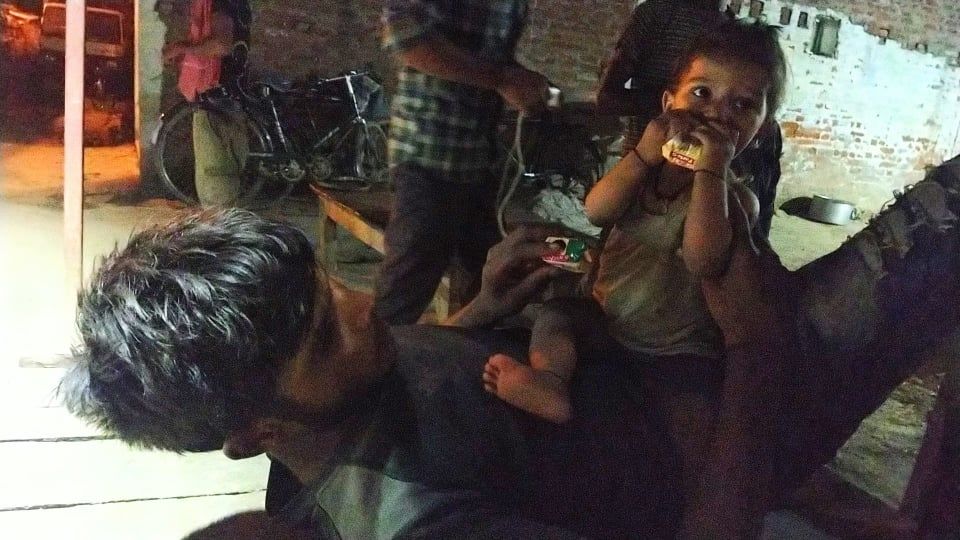Parle-G biscuits record the highest ever sale during the lockdown. Here’s why …
It was convenient for volunteers to distribute Parle-G among labourers travelling back home. It was a cheap and accessible option. In April and May, the company has registered record growth


Ramlal, who used to work as a construction worker in Mumbai’s Powai, somehow managed to return home to Deoria in Uttar Pradesh. He was accompanied by his wife and a one-and-a-half-year-old daughter. During the five-day-long journey, Ramlal and his wife managed to get food distributed by the government and private volunteers but were unable to find milk for their one-and-a-half-year-old daughter.
He said that during the five-day-long journey, she got milk only twice, and lived upon mother’s milk and Parle-G for the rest of the journey. Ramlal said that since his wife had been exhausted and hungry during the journey, she was unable to feed the baby adequately so the Parle biscuits were a life-saver. When Gaon Connection team met Ramlal and his family, Preeti was busying playing with her Parle-G biscuit packet. This biscuit also became a major support for the homebound labourers on foot, bicycle and truck during the lockdown.
It was also very helpful for the volunteers who were serving these people on the highway. It was a very cheap and accessible option for the hungry labourers travelling hundreds of kilometres. As per the official statistics, there has been a record sale of Parle-G biscuits in the months of April and May. Parle’s officials have confirmed it themselves.
Senior Parle products officer Mayank Shah told media that during the lockdown, the total market share of the Parle Company has increased by about 5 per cent. A large part of this growth — 80 to 90 per cent — has come from the sale of Parle-G biscuits. According to Shah: “In the past 30-40 years, we have never witnessed such a jump before.” Although Parle Products refused to give the sales figures of Parle-G biscuits, Parle-G sales in March, April and May this year were the highest in the past 80 years, as per a report by The Economic Times.
Shah said: “During the pandemic, NGOs and government agencies distributing relief packets also preferred Parle-G biscuit as it is very economical and costs only Rs 2. At the same time, it is a good source of glucose. Earlier, even during the tsunami and earthquakes, Parle-G sales had increased, but the sale happening during the lockdown is unprecedented.”
In the last three months of the lockdown, when people were stuck at home, the sale of all kinds of biscuits has increased. It also includes Britannia Tiger, Bourbon and Marigold biscuits. But being cheaper and useful, Parle-G’s sales had registered a record growth.
“Others have also performed well,” said Shah and added: “But Parle-G’s record sale will be considered the golden days in the company’s history.” The general manager of Britannia, Varun Beri, also said that the sales have risen considerably in the last two months. Consumers used to go out for street food, restaurants, malls, anywhere in normal days. But because of the lockdown, when the consumption is limited to the house, it is leading to an increased sale of packaged food items like biscuits and namkeen.
Earlier, in 2019, Parle Products was reeling under an economic slowdown. Parle, one of the big biscuit-making companies in India, had talked about cutting down its production and retrenchment of 10,000 employees, citing a decline in demand in rural areas.
Shah had then said: “The sale of Parle-G biscuits has been declining since the introduction of the GST in 2017. Due to the tax hike, the company’s highest-selling biscuit has been affected; the company has to reduce the number of biscuits per packet. This is reducing the demand for biscuits.”
Parle was established in 1929 and about one lakh employees work with the company. Normally about 40 crore Parle-G biscuits are produced every day. The company has a total of 135 manufacturing units in India with 10 plants and 125 third party plants (associate plants). The annual revenue of the company located in Mumbai is more than $4 billion.

